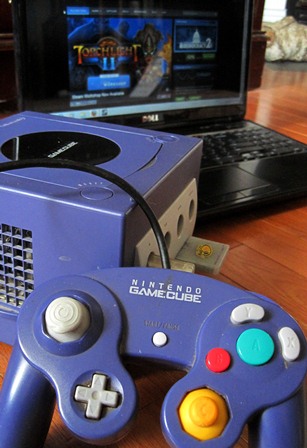
Video games are quickly becoming a deeply integrated part of our everyday lives. The most startling trend has been the migration away from consoles and towards PCs (personal computers) as a gaming platform.
An infographic done by Ignite Game Technologies says that 72 percent of North American households play computer or video games. According to GameStrata, the average gamer between the ages of 18-48 spends more than $30,500 on games and gaming hardware.
With so many games out there already, and with the convenient accessibility of PC gaming, how will console companies continue to deliver fresh and innovative content and keep their products afloat? What are teenagers and young adults—the prime audience—looking for in a video game?
Young people spend many hours a week playing video games. But is all this time spent in front of a screen bad? Not necessarily. A study conducted by University of Rochester shows that many gamers have polished reflexes, quicker but no less accurate decision-making skills, heightened sensitivity to the goings-on around them, as well as improved vision by making it easier for them to distinguish between similar colors.
So what’s the secret? Is it the beautiful, cutting-edge graphics we are starting to see on newer games? According to some college students, graphics are not all that important to them. It’s good storytelling and gameplay mechanics that are closer to the top of their priority lists, although it was mentioned that realistic graphics in certain games, such as the 2011 game The Elder Scrolls V: Skyrim, can help tremendously with immersion.
Seth Rinker, a Senior at Hood College, said, “Good graphics can never make a bad game good. A good game does not need good graphics.”
John Pellegrino, a Sophomore at University of Maryland, said, “A game can have as updated graphics as it wants, but if the gameplay is [bad] or the story makes no sense, then graphics have no bearing.” A game, he said, is played first and foremost for “game's sake.”
Ignite’s inforgraphic revealed that from 2010-2012, PC gaming revenues were above that of console games. It also shows that PC games, when stacked up against the consoles, have more processing power, and that gamers spend many more hours on PC games than on any other console.
Courtney Ward, a Junior at Hood College, said of PC gaming, “I feel that they are a huge opportunity for new game makers to explore their imagination, ideas, and talents further with the community. I personally am a fan of Steam, but I don't have any problem or issues with other engines— I'm just loyal to my first.”
However, multiplayer online gaming, that which requires a fast internet connection, often includes paying a monthly fee for use, and for the player to cooperate with other players, such as in MMORPGS (Massively Multiplayer Online Role-playing Games) is a different story.
Jordan Garvey, a Junior at Hood College, said that she preferred not to have to rely on other players.
Jef Cliber, a writer for policymic.com, published movie critic, and avid gamer, said, “On-line gaming is phasing out, honestly. I used to see a huge volume folks online seemingly constantly playing a lot of various games. These days though - and it may be just the games that are out there - fewer folks are as devoted to it. And by constantly, I mean World of Warcraft or Everquest. . .This is the measure that all other on-line gaming will be measured against.”
Pellegrino said that balance between the two is key. “I think online gaming is much more enjoyable and a lot more fun, but can also be counter-productive towards building a healthy social life and practicing healthy social skills,” he said. “I think platforms are better in that respect, in that when you play with friends in the room, it’s a lot more enjoyable and acts as a great social bonding opportunity. Online games can take that away completely, and so I think a balance of both is required to get the most out of gaming.”
The rise of the internet made it possible for game developers to have more options about how to go about creating new games. Sites like Indiegogo and Kickstarter, where people can donate to fund projects they are interested in seeing completed, exploded in popularity in recent years. These sites allowed aspiring developers to make their visions a reality with fewer strings attached and much more flexibility. The best part in many artist’s eyes is the ability to keep full control over their creation.
Rinker said he feels that it is the direction in which the industry is moving. “Kickstarter is awesome,” he said, “I've seen it do it's magic many times. Same with other, similar sites.”
Pellegrino said, “Games developed independently of the larger corporations can have a lot of originality and heart put into them, which can place them at the forefront of today's gaming market.” He said he thinks that Indie games, for the most part, hold great potential.
So what is the future of gaming? PCs continue to quickly grab more ground in the industry, and it is undoubtedly due to their accessibility, affordability, and variety. In this fast-paced world, those aspects are what gamers are valuing. Consoles may not be on the way out yet, but it seems that they have some stiff competition and will have to step up their own performance if they want to continue competing with their fast-evolving and adaptable opponent. Some may consider moving part or all of their business online.
